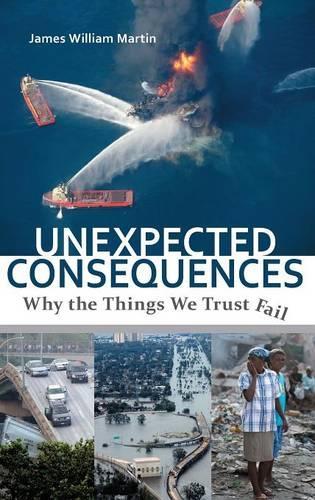
Unexpected Consequences: Why The Things We Trust Fail
(Hardback)
Publishing Details
Unexpected Consequences: Why The Things We Trust Fail
By (Author) James William Martin
Bloomsbury Publishing PLC
Praeger Publishers Inc
12th September 2011
United States
Classifications
General
Non Fiction
745.2
Physical Properties
Hardback
312
Width 156mm, Height 235mm
1021g
Description
In this book, interrelationships between more than 40 recent catastrophic events are explored, discussing failures of structures and machines, information technology, regulatory agencies, security designs, and more. The world is full of wonderful products and services that occasionally disappoint and even harm us. Unexpected Consequences: Why The Things We Trust Fail explores the reasons these failures occur, examining them from technological, human, and organizational perspectives. Using more than 40 recent catastrophic events to illustrate its points, the book discusses structural and machine failure, but also the often-overlooked failure of people and of systems related to such things as information technology, healthcare, and security. As the book demonstrates, faulty technology played a surprisingly small part in many of the scrutinized disasters. Author James William Martin finds cognitive factors and organizational dynamics, including ethics, are major contributors to most unexpected and catastrophic failures causing loss of life and extensive property damage. With that fresh perspective in mind, Martin is able to suggest remedies that address service failure and just may help prevent future disasters from taking place.
Reviews
The book's seven chapters provide an interesting, timely perspective on the unique interrelationship among a project's technological design, an organization's culture and dynamics, and social-psychological factors such as attitudes, information filtering, self-concept, social influence, status, self-esteem, and volition as causal factors in the often unexpected and usually catastrophic failures. * Choice *
Author Bio
James William Martin is the author of several books focused on change management, teamwork, and process improvement.
